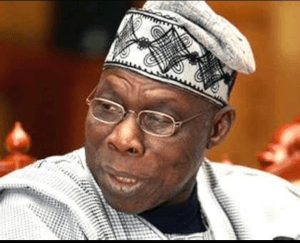N70,000 Minimum wage : Obasanjo Accuses Labour Leaders of Betrayal
By Ricky Awodi
Former President Olusegun Obasanjo has condemned the N70,000 minimum wage recently approved by President Bola Tinubu, arguing that it falls short of meeting workers’ basic needs. In his latest book, Nigeria: Past and Future, Obasanjo accused labour leaders of compromising workers’ welfare for personal political gains.
“Minimum Wage Too Poor to Sustain Workers”
Obasanjo highlighted that the new wage, though an improvement from the previous N33,000, remains insufficient in the face of rising inflation and economic hardship.
> “The minimum wage does not even cover transportation costs for some workers, let alone food, housing, and family upkeep,” he wrote.
His comments reflect the broader frustration among Nigerian workers who continue to struggle with skyrocketing living costs, despite the government’s claims of progress.
Labour Leaders Under Fire
In a scathing attack, the former president accused trade union leaders of prioritizing their political ambitions over the welfare of workers.
> “How did it happen that a trade union leader, while in office, was negotiating with a political party to be adopted as a gubernatorial candidate?”
Obasanjo argued that this shift in focus has weakened the power of labour unions, turning them into tools for personal advancement rather than instruments of workers’ empowerment.
Bribery and Political Compromise
Beyond personal ambitions, Obasanjo alleged that labour leaders often accept bribes to silence agitation for better wages and working conditions.
> “Rather than negotiate in the interest of the workers, they do sabre-rattling, and then they are called into a room where money in large amounts is stuffed into their hands. And they keep quiet.”
His statement suggests a long-standing culture of corruption where labour leaders abandon collective bargaining in exchange for financial rewards from the government.
Calls for Reform
To prevent such conflicts of interest, Obasanjo proposed that labour leaders should be barred from entering politics immediately after leaving office.
> “There should be a law requiring labour leaders to wait at least five years before they can participate in politics,” he recommended.
This proposal aims to restore integrity to labour unions and ensure that negotiations with the government are conducted in good faith.

The Road to N70,000 Minimum Wage
The N70,000 minimum wage was signed into law by President Tinubu on July 29, 2024, following extensive negotiations with organised labour and the private sector. The decision came after labour unions initially demanded N250,000 per month but settled for the reduced figure after months of deliberation.
However, Obasanjo’s criticisms raise fresh concerns about whether the new wage truly addresses the economic reality of Nigerian workers.
What Next for Workers?
With inflation eroding purchasing power and government policies doing little to ease the burden on ordinary Nigerians, the struggle for a living wage continues. Obasanjo’s revelations have reignited debates about the role of labour unions and their effectiveness in advocating for workers’ rights.
As the nation grapples with economic hardship, the question remains: Will this criticism spark real change, or will it be another warning ignored by those in power?


